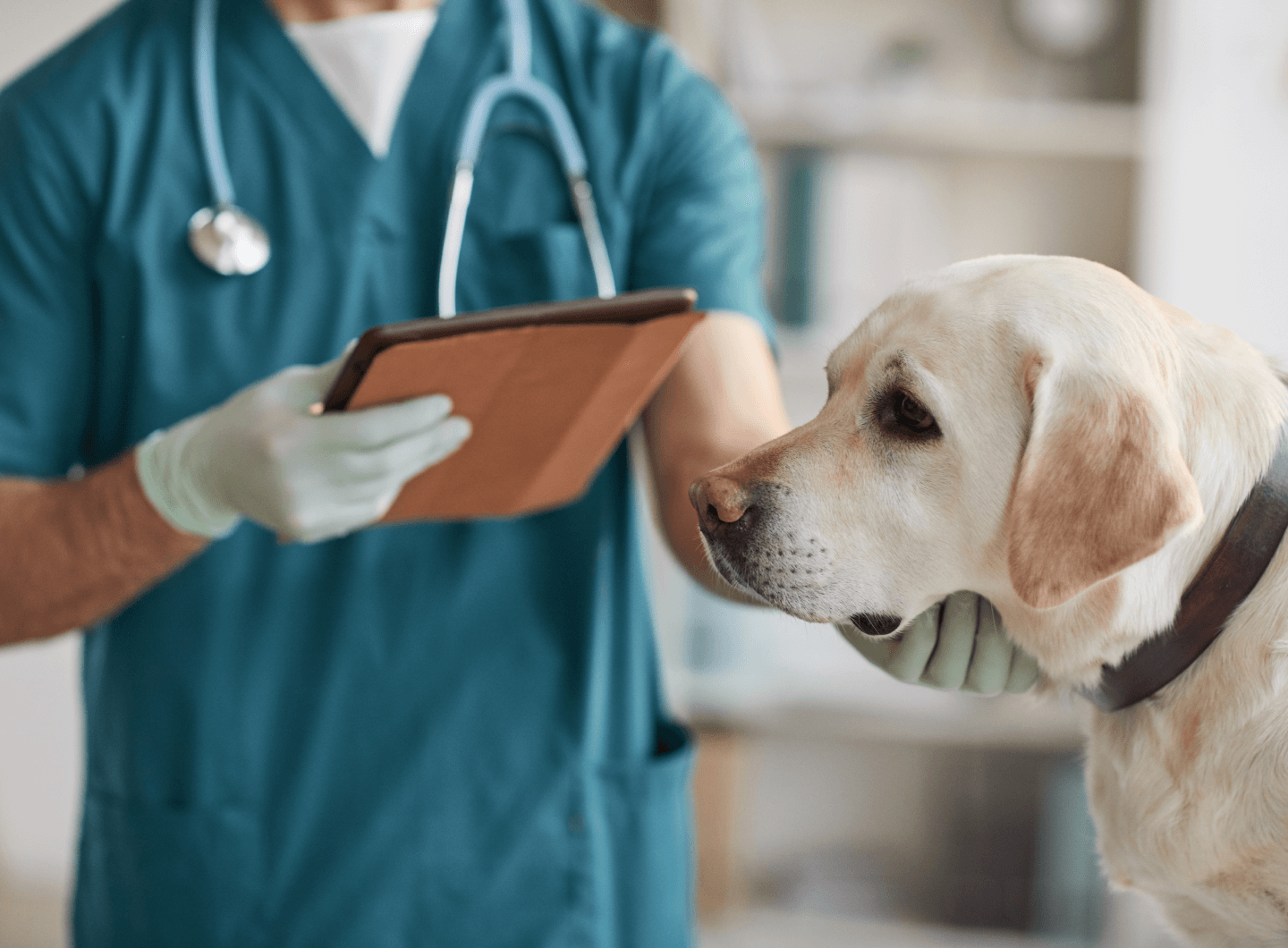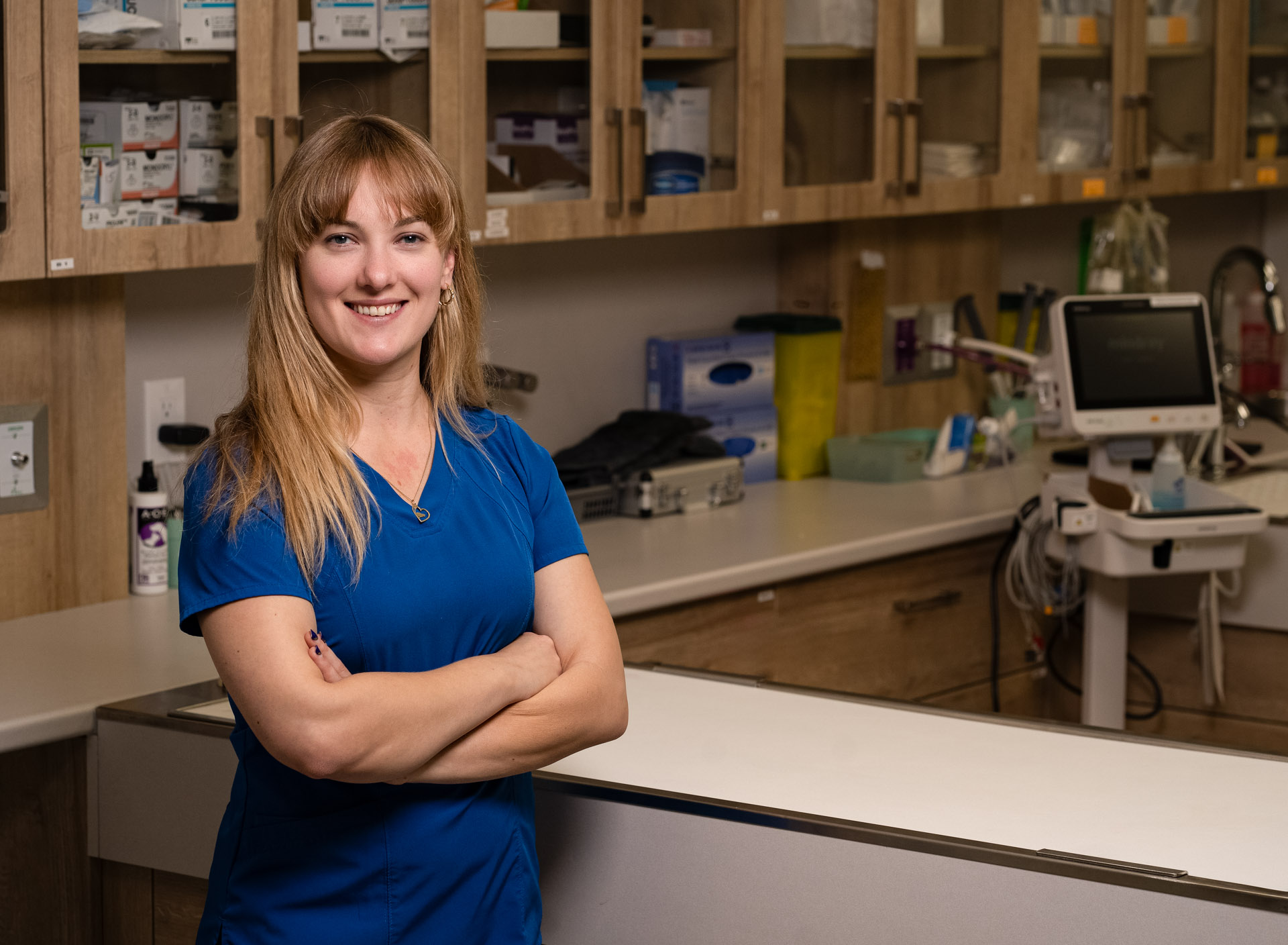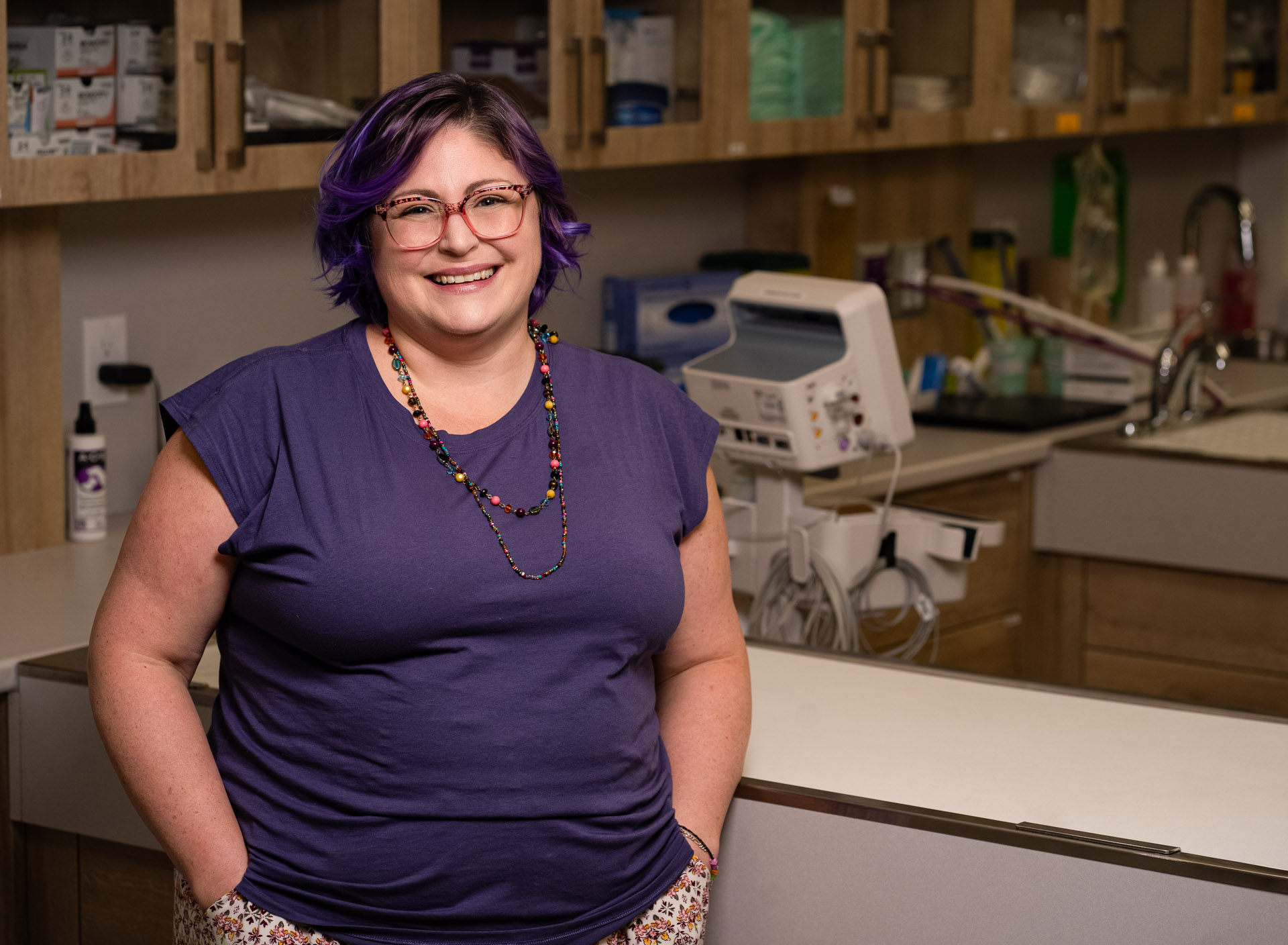Who is a Veterinary Medical Oncologist?
A veterinary medical oncologist is a board-certified specialist in the diagnosis and medical management of cancers in cats and dogs. A medical oncologist undergoes extensive training to acquire the specialized skills to diagnose and medically treat cancers. This involves completing veterinary school to become a veterinarian (4 years), an internship program (minimum of 1 year), and an approved medical oncology residency training program (3 years). After this training, the veterinarian must complete and pass multi-day written and practical examinations to become a board-certified veterinary medical oncologist. Dr. Kara Magee is board-certified in Medical Oncology with the American College of Veterinary Internal Medicine (ACVIM). Dr. Krista Gower is residency-trained and has practiced exclusively in medical oncology for over ten years.

Our Medical Oncology Specialists

Dr. Kara Magee
Veterinary Medical Oncologist

Dr. Krista Gower
Residency Trained in Medical Oncology
When Should Your Pet See Our Medical Oncologists?
Our medical oncology team is willing to see your pet anytime they have a suspected or confirmed cancer. We accept referrals from primary care veterinarians and self-referrals directly from owners. Some of the more common changes that may be indicative of cancer are:
- Masses, especially those that increase, feel firm, or are changing in appearance (becoming bruised or ulcerated)
- Persistent vomiting
- Persistent diarrhea
- Straining when defecating or urinating
- Dramatic weight change
- Sudden lameness or swelling of the leg
- Blood coming from the mouth or nose, especially if accompanied by foul odor
- Swelling of the abdomen, especially if accompanied by decreased energy or pale gums
- Major changes in appetite and energy beyond normal age-related changes
You and Your Pet Should Consult with a Medical Oncologist for One or More of the Following Reasons:
- To have a better understanding of your pet’s diagnosis
- To have your questions and concerns addressed in a supportive environment
- For the diagnosis and staging of newly diagnosed cancers
- To discuss medical treatment options and prognosis
- To discuss chemotherapy treatment and side effects management
- For palliative care consultation
- To discuss post-surgery follow-up recommendations
What Are Some of the Common Cancers Our Medical Oncologists Treat?
- Lymphomas
- High-grade mast cell tumors
- Leukemias
- Multiple myelomas
- Hemangiosarcomas
- Malignant melanomas (oral, digit, foot pads)
- Osteosarcomas
- Histiocytic sarcomas
- Transitional cell carcinomas
What Are Some of the Diagnostics and Treatments Offered by Our Medical Oncologists?
- Complete clinical staging
- Fine-needle aspiration and cytology
- Solid tumor and bone biopsy with histology
- Bone marrow aspiration and core biopsy
- Blood work evaluations
- Immunophenotyping (flow cytometry or PARR)
- Immunocytochemistry and immunohistochemistry
- Urinary cancer diagnosis through BRAF, prostatic wash, or traumatic catheterization
- Advanced imaging (e.g., CT scan, ultrasound, endoscopy)
- Ultrasound-guided fine-needle aspiration
- Endoscopic biopsies
- Oral, injectable, and intracavitary chemotherapy
- Immunotherapy
- Small molecule inhibitors
- Palliative care and pain management in consultation with
- Dr. Matt Milloway, our specialist in veterinary anesthesia and analgesia
- Emotional support and further discussion of difficult medical decisions with Michelle Lem, our social worker
What Should You Expect When Your Pet is Treated with Chemotherapy?
Chemotherapy is commonly used in the treatment of systemic cancers (e.g., lymphoma or multiple myeloma) and some cancers with a high metastatic risk (e.g., hemangiosarcoma or osteosarcoma). Chemotherapy is usually administered as the only treatment for systemic cancers but is usually administered after other treatments, such as surgery, for cancers with a high metastatic risk. Chemotherapy can also be administered for palliation of cancers where so-called curative-intent treatment options are either not possible or declined.
Chemotherapy can be given orally or by intravenous injection or infusion. It is most often given in hospital but can sometimes be given at home as an ongoing oral medication. Approximately 20-25% of cats and dogs undergoing chemotherapy will experience side effects associated with their chemotherapy. These side effects are usually self-limiting or at least readily managed with a combination of anti-nausea, antiemetic, or gastrointestinal protectant agents and antibiotics. Only 5% of cats and dogs treated with chemotherapy experience severe side effects requiring hospitalization for treatment of these side effects. This is very different from the situation in human medicine, where most people experience side effects requiring hospitalization and further treatment. Our goal when administering chemotherapy is to provide effective treatment while ensuring your pet’s comfort and quality of life.
What Should You Expect When Booking an Appointment with Our Medical Oncologist at Capital City Specialty & Emergency Animal Hospital?
If your primary care veterinarian is referring your pet, we will contact you as soon as possible to schedule your appointment. If you are making a self-referral for your pet, please either call (613-244-7387) or email (oncology@capcityvet.com) our team directly. One of our team members will schedule you into the next available appointment slot. Our regular schedule is Monday to Thursday from 8 a.m. until 5 p.m.
On the day of your appointment, you and your pet will be checked in at reception and brought to the medical oncology examination room. Dr. Magee or Dr. Gower will review your pet’s medical records and recent history and perform a thorough physical examination. Additional tests may be recommended to evaluate your pet’s cancer further if indicated. The risks, benefits, and possible side effects of all the options will be reviewed with you to allow you to make an informed decision when deciding on a treatment plan. If necessary, our medical oncologists will consult with other Capital City Specialty & Emergency Hospital specialists to provide a comprehensive and collaborative plan for your pet. The entire process will take up to 120 minutes.
If medications are required, a treatment plan and medications will be sent home with you with detailed instructions. A thorough report will be sent to you and your primary care veterinarian, including examination findings, diagnosis, treatments, follow-up recommendations, and a prognosis summary. This will ensure that we are all included as a team to provide continuity of care for your pet.
We strive to provide you and your pet with the highest level of care. We love what we do, we love our patients, and we treat them as if they were our own.


